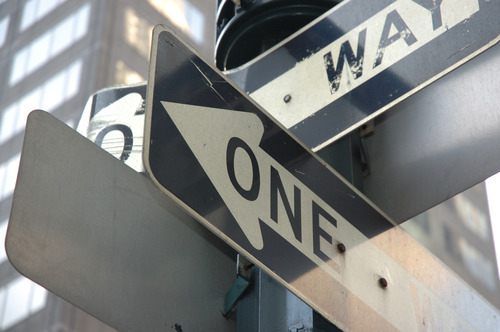
For those who don’t keep up with every bit of political chatter, Brandon Ambrosino is a gay Liberty University alumnus turned essayist whose initial claim to fame was his piece for The Atlantic on “Being Gay at Jerry Falwell’s University.” Since then he’s made quite the name for himself for being contrarian while writing about LGBT issues. Or, to put it more bluntly, he’s pissed an awful lot of people in the gay establishment off, arguably for good reason.
I’ve certainly disagreed with Ambrosino’s opinions on more than one occasion and have told him so on Twitter. I’m not here to criticize him today though.
One of the things that has bothered me in reading the coverage of his hiring by Ezra Klein’s new site Vox is how people keep criticizing him for the essay he wrote about being gay at Liberty. Here’s one such example at Media Matters, though there are a number of other liberal and progressive sites that have expressed similar criticisms.
According to that narrative, Ambrosino’s essay about his time at Liberty is criticized because it is too positive about the school, insists that people weren’t homophobes, and has a generally positive view of Jerry Falwell. Apparently he’s supposed to have written about how constantly miserable and horrible it all was, and to have gone on the attack against the school, or something like that.
I don’t think his critics are being fair in their attacks on him for that essay.
In the interest of full disclosure, I should probably mention that both of my brothers went to Liberty, and that one was a student there at the same time Brandon was. While I don’t know Brandon, Facebook tells me that we have mutual friends, which is unsurprising given how interconnected the evangelical world is.
Anybody who has followed my blog for any length of time knows about my complicated feelings about my own Christian college experience, particularly in light of my alumni update getting censored. There are a lot of us out there who went to evangelical colleges who have conflicted feelings because of the way our beliefs have shifted, and because we aren’t entirely sure how to reconcile the good and the bad and who we were then with who we are now.
When you’re a queer alumnus of a school with less-than-welcoming policies towards LGBT students, that compounds the mixture of emotions. Even more so when you have generally positive feelings about your college experience.
If you didn’t go to an evangelical college, it’s easy to sit back and point fingers at somebody for not reacting to their college experience the way you think they should.
The problem with the finger pointing is that it overlooks all of the complicated messiness that is the real world. People are more than just the sum of their ideas, and yes, even at a place with the reputation that Liberty has, you can find all sorts of people with different ideas and motivations. Students don’t all march in lockstep with the stated positions of the administration, neither do faculty, and while it would be simpler to write everything off in stark black and white, there are shades and nuances that don’t lend themselves to unilateral thinking.
When I read Brandon Ambrosino’s essay on being gay at Liberty, I saw a young writer trying to express the reality of his lived experience. That experience may not be the same as others’ experiences, but you can’t expect someone to shape their narrative of their own life in order to fit the expectations of others.
It’s not fair to Brandon to say that his feelings about his time at Liberty are any less real than say, the evangelical pastor who so disliked his time there so much that he assumes that other alumni were traumatized by the experience. Each person’s experiences and feelings are their own.
Trying to reconcile the positive experiences you had and the friends you made with the knowledge that your school has taken political positions that would keep you a second class citizen is something far easier to do in theory than it is in reality. There’s a reason I keep returning to this as a theme, it’s because it’s hard.
I didn’t go to Liberty because I knew I would have hated it, but with as much time as I’ve spent over the years trying to reconcile my mixed feelings about my college experience, I’m not going to fault Brandon Ambrosino for his efforts to reconcile his own experiences. I don’t think others should give him flack either. It’s not their story to tell, it’s his.